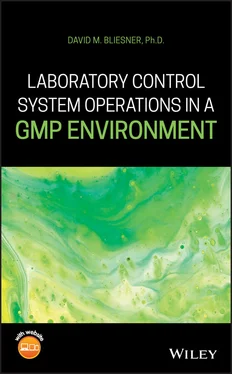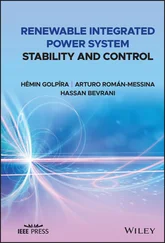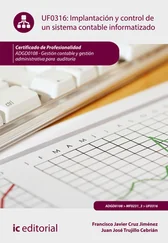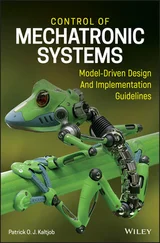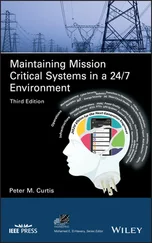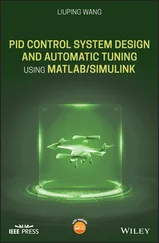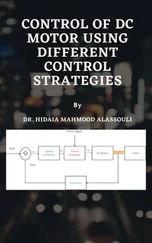4 Production System
5 Packaging and Labeling System
6 Laboratory Control System
According to FDA “The Quality System provides the foundation for the manufacturing systems that are linked and function within it.” 1
This approach is commonly referred to as the six-system model and is still used today by the FDA to conduct inspections of GMP facilities.
During this time, Delphi Analytical Services, Inc. (Delphi) served as one of the third-party expert consulting firms on several Consent Decrees at major pharmaceutical companies. Delphi's core competency is the practical understanding of workings of the laboratory control system (LCS), the sixth quality system mentioned in the FDA model. Delphi was extensively involved in performing third-party audits of quality control (QC) and research and development (R&D) laboratories for companies under Consent Decree.
While executing these consulting assignments it became apparent that the CGMPs regulations, FDA Guidance Documents and FDA Internal Compliance Program Guides offered little direction or specifics of what was expected of a CGMP compliant LCS. Because of this, Delphi developed and documented a systematic means for performing the baseline audits, capturing deficiencies, reporting the results, and developing subsequent corrective action plans, for QC laboratories. In addition, Delphi also created instructional materials and began teaching courses on auditing QC laboratories at various client sites and scientific conferences.
Due to the inherent complexity of the LCS, Delphi divided it into seven sub systems or sub elements. These included the following:
1 Laboratory Managerial and Administrative Systems
2 Laboratory Documentation Practices and Standard Operating Procedures
3 Laboratory Equipment Qualification and Calibration
4 Laboratory Facilities
5 Methods Validation and Technology Transfer
6 Laboratory Computer Systems
7 Laboratory Investigations
Based on real-world experiences, Delphi then, in turn, developed detailed audit checklists for each LCS sub element. These became the basis for most of Delphi's consulting contracts and instruction material.
In March 2004 at the Pittsburgh Conference on Analytical Chemistry and Applied Spectroscopy (PittCon ©), Delphi Analytical Services, Inc.'s president, Dr. David M. Bliesner, Ph.D., taught a one-day course titled “How to Establish a GMP Laboratory Audit System.” The course was well attended which led to a meeting with a representative of Wiley-Interscience, John Wiley & Sons, Inc. At the conclusion of that meeting, it was agreed that he would write a proposal for publication of a book. The proposal was accepted and became the book titled Establishing a CGMP Laboratory Audit System: A Practical Guide in 2006.
Over the course of the next 12 years (2006–2018), the pharmaceutical industry experienced a massive paradigm shift in its business and operational models. This in turn resulted in changes to the manner in which regulatory agencies enforced the GMPs. Some key elements of these changes included:
Substantial outsourcing of drug development, manufacturing, testing, and other functions
Offshoring of manufacturing and testing of active pharmaceutical ingredients (APIs) and drug products
Profit versus quality driven decision making
Reductions in experienced, permanent workforces
Increased regulatory activity by US FDA at overseas plants
Increased Global Regulatory Agency oversight, guidance, and cooperation
Because of these changes, and other factors, it became obvious that Establishing a CGMP Laboratory Audit System: A Practical Guide had much broader utility than just serving as an audit guide. In particular, the real value of the book over the years has not been as an auditing guide but:
A means to introduce auality assurance (QA) and QC personnel to the concept of quality systems and the LCS in particular
As a basis for instructing QA and QC personnel on Laboratory GMPs
To assist in interpreting and clarifying regulatory expectations for the LCS
As the basis for assisting laboratory management in implementing and maintaining CGMP compliant practices in their own QC laboratories
Therefore, the purpose of this new book titled Laboratory Control System Operations in a GMP Environment is to focus on LCS operations versus auditing .
The goal in writing this book is to publish a text, which when implemented in QC and R&D laboratories, provides the basis for operating a CGMP compliant LCS. This will improve an organization's chances for withstanding regulatory scrutiny and enhance operational efficiency. This new book is designed to be used in several ways, including:
Designing and implementing a new, from scratch, CGMP compliant LCS
Upgrading or tweaking an existing LCS
Laying a basis for initial and periodic LCS GMP training
Laying a basis for improving operational efficiency
Serving as an operational reference guide: Third party “sanity” check to help solve compliance challenges as they arise
Laboratory Control System Operations in a GMP Environment builds on the original auditing text described earlier. However, instead of emphasizing auditing, this new text not only focuses and upgrades the operational aspects of the original seven LCS sub elements but also expands the LCS to encompass three additional sub elements, which are marked with an asterisk(*) in the following list. This results in the following 10 chapters in the book:
1 Laboratory Managerial and Administrative Systems
2 Laboratory Documentation Practices and Standard Operating Procedures
3 Laboratory Equipment
4 Laboratory Facilities
5 Method Validation and Method Transfer
6 Laboratory Computer Systems
7 Laboratory Investigations
8 Data Governance and Data Integrity*
9 Stability Program*
10 General Laboratory Compliance Practices*
Each chapter in this text describes the critical functions of the LCS sub element so the reader understands what is expected from the FDA and other Global Regulatory Agencies. In addition, each chapter links to tools, templates, checklists, and Global Regulatory Agencies' guidances. All of these tools and templates are accessible for download online through a Wiley Interscience web portal for easy modification and application by the end-user in their own laboratories.
Readers, in using this book, may accomplish the following:
Fully implement a functional LCS which can withstand Global Regulatory scrutiny
Increase operational efficiency
Stay current with GMPs and industry trends
Save time by using the real-world tools and templates found in the book, which can be modified and used by the reader
Use the text as a benchmark reference to which they can assess the status of compliance of their own laboratories
Laboratory Control System Operations in a GMP Environment is written for a broad audience. It is applicable to both QC and QA professionals in small, medium, and large companies within the pharmaceutical and biopharmaceutical industries. R&D personnel working in non-GMP environments will also benefit by applying the organizational schemes and principals presented in this text.
This book is particularly helpful for personnel who work in smaller companies because they often do not have the financial, personnel resources, and existing “corporate knowledge” that large US- and European-based companies may possess. This means that smaller organizations are often left to “figure it out” on their own. For these smaller operations, this text is particularly valuable because of the example-templates and checklists it includes.
To our knowledge no such detailed operational text or guide exists in the marketplace. We hope you find Laboratory Control System Operations in a GMP Environment useful and wish you the best in your continuing quest to establish a quality-minded culture, improve operational efficiency, and thrive under Global Regulatory scrutiny.
Читать дальше
